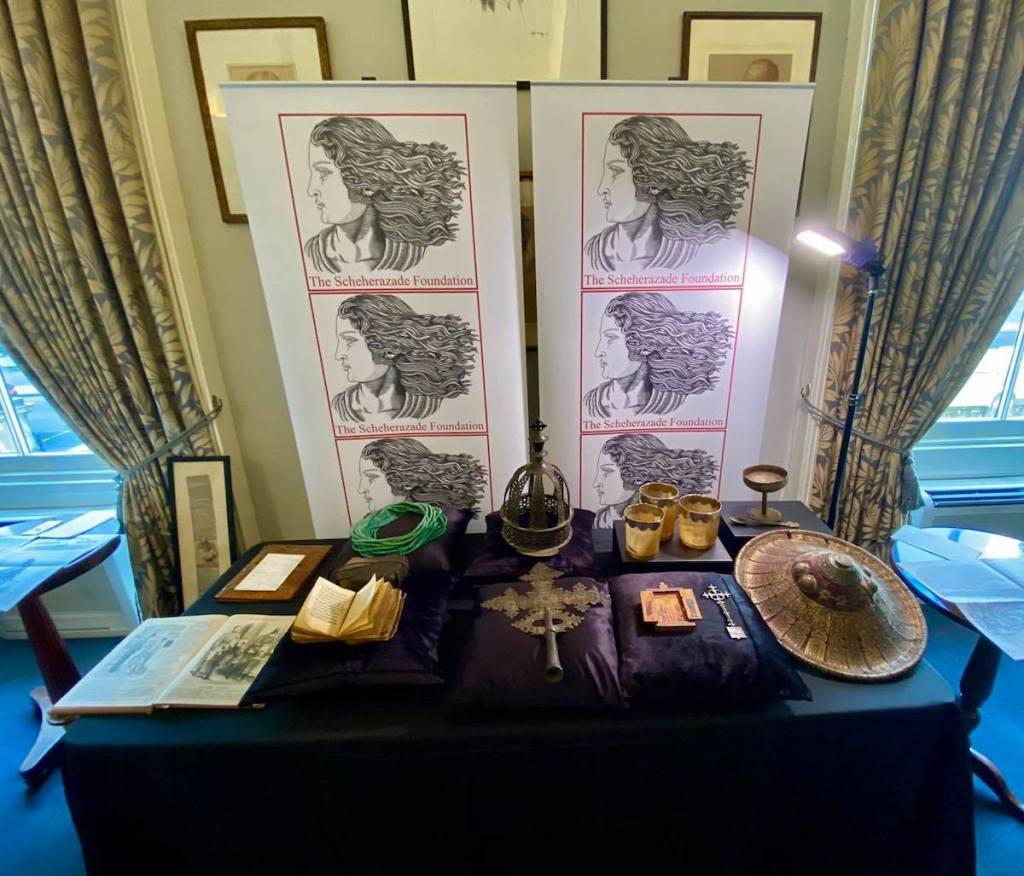 A collection of objects returned to Ethiopia by the Scheherazade Foundation, London. Courtesy Ethiopian Embassy in England
A collection of objects returned to Ethiopia by the Scheherazade Foundation, London. Courtesy Ethiopian Embassy in England
The London-based Scheherazade Foundation has returned a collection of artifacts that were looted from Ethiopia in 1868. Tahrir Shah, one of the Scheherazade Foundation’s cofounders, bought some of the works privately at the Busby auction house in Bridgeport, England. The artifacts were pulled from public auction the day before the sale was set to take place amid an outcry from the Ethiopian Embassy in England. Ethiopian officials were quick to praise the handover as a major restitution—one that they said acts as a recognition of the violence wrought by British colonial forces within the country.
The objects were taken from Ethiopia during the Battle of Maqdala, which was waged by British troops attempting to overthrow the Ethiopian empire. As part of the battle, the soldiers plundered a fortress, taking from it numerous highly valued objects, including beakers, a shield, crosses, and a handwritten text.
Many of those artifacts currently reside in British cultural institutions. Within the U.K., Maqdala-era artifacts have received a new level of attention over the past few years. A richly detailed gold crown from the fortress that is now owned by London’s Victoria and Albert Museum has been the subject of repeated calls for restitution. In 2007, Ethiopia formally demanded its return. In 2018, when the museum put on a display focused on the Magdala fortress, V&A director Tristram Hunt floated the possibility of making a long-term loan of disputed items back to the African country, though the work still remains at the London institution. On its website, the V&A calls the crown an “unsettling reminder of the imperial processes which enabled British museums to acquire the cultural assets of others.”
Many of the objects returned to Ethiopia on Wednesday are far less valuable than that crown, however. In a statement, Alula Pankhurst, a member of Ethiopia’s National Heritage Restitution Committee, called the return “the single most significant heritage restitution in Ethiopia’s history.”
Ethiopian ambassador Teferi Melesse Desta said in a statement, “To honour the memory of Maqdala, I once again renew the calls made by countless Ethiopians before me for museums, collectors and holders of Maqdala heritage to return [these items]… It is my hope that in the Maqdala returns to come, the relations between our two nations and people can deepen and grow from strength to strength.”
Source link : https://www.artnews.com/art-news/news/maqdala-artifacts-ethiopia-restitution-england-1234603510












